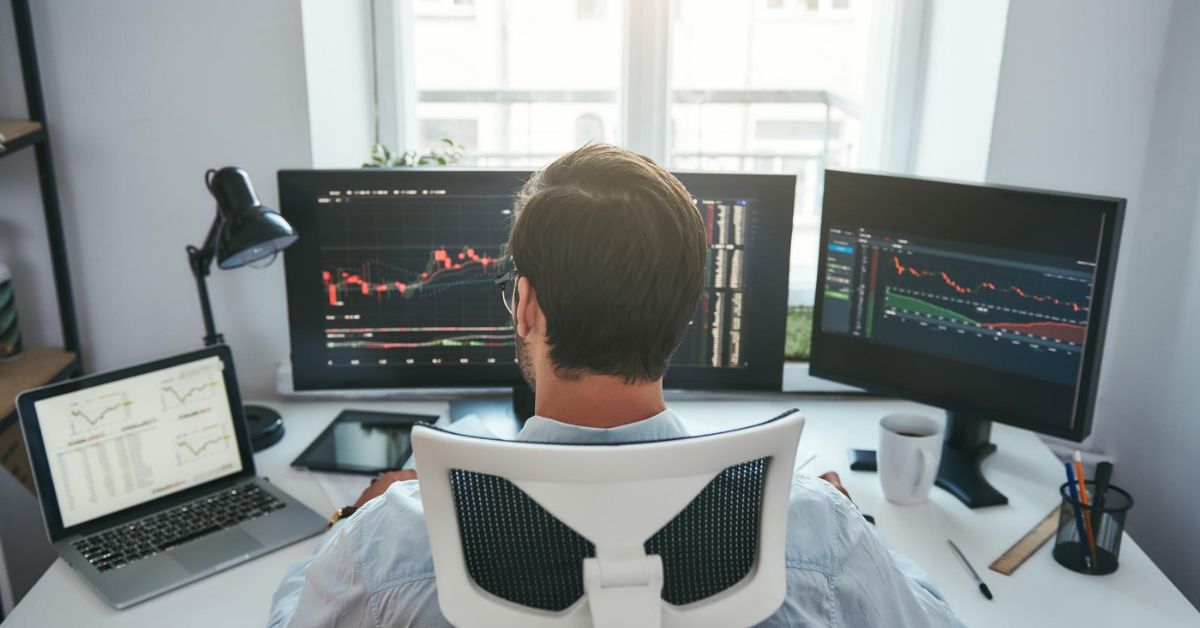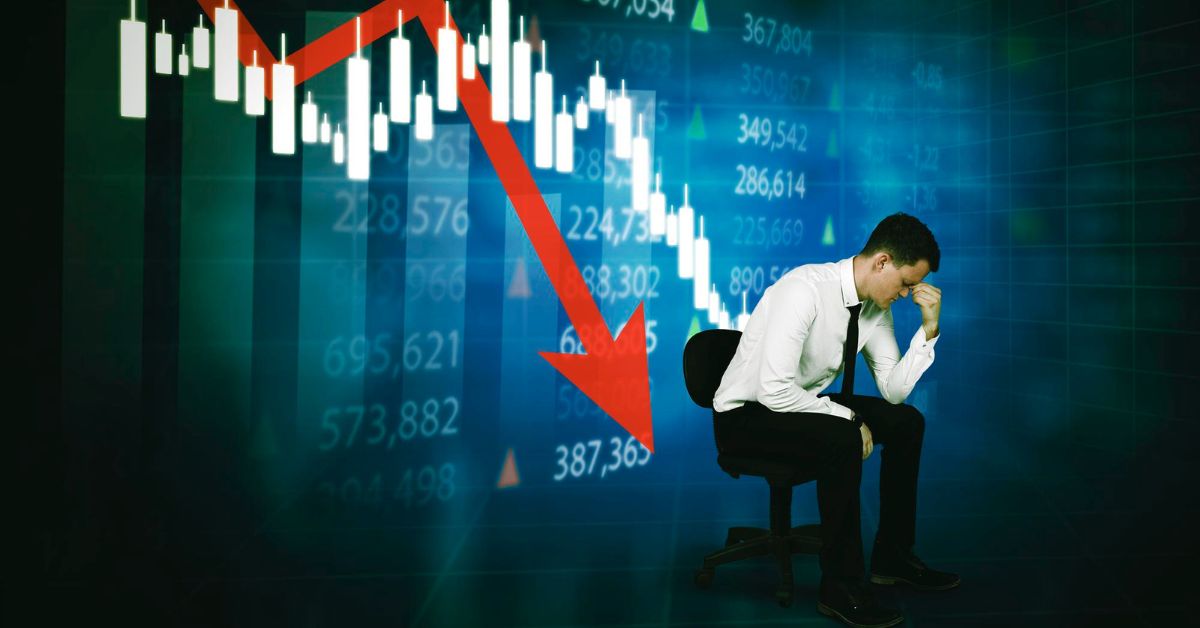Trading can be an exhilarating journey filled with opportunities and challenges. However, many traders fall prey to one common psychological pitfall: overconfidence. This can lead to reckless decisions, ignoring market signals, and risking more than necessary. So, what is trading overconfidence?
Overconfidence in trading is not just about self-assurance; it’s often a result of cognitive biases that skew judgment. Platforms like Prime XBT offer traders powerful tools that help traders save from the dangers of overestimating their abilities. So, join PrimeXBT today! Use promo code PRIMEOTT to receive a +7% bonus on your deposit.
The temptation to over-trade and ignore risks can become overwhelming. To succeed in trading, it’s crucial to understand and manage overconfidence. This blog will explore the impact of overconfidence on trading decisions and provide actionable strategies to overcome it. Let’s get started.
What is Trading Overconfidence?

Overconfidence in trading refers to the tendency to overestimate one’s abilities. It leads traders to believe they are more skilled than they are. This bias can cloud judgment and fuel riskier decisions.
Psychologically, overconfidence stems from cognitive biases like the Dunning-Kruger effect. This occurs when individuals with limited knowledge believe they are experts. Traders often misinterpret past wins as signs of exceptional skill rather than luck or favorable conditions. In trading, overconfidence can manifest in many ways.
Traders might take excessive risks, believing they can accurately predict market movements. They may also ignore important technical and fundamental analysis, thinking they know better than the market itself. This leads to poor decisions, which can ultimately result in significant financial loss.
Causes of Trading Overconfidence
Several factors contribute to overconfidence in trading. Such as:
Past Success and Confirmation Bias
Past success can lead to overconfidence, especially for traders who have experienced several profitable trades. When traders have a winning streak, they may assume their success is due to superior skill rather than favorable market conditions. This belief can create a false sense of security. As a result, traders may begin to take on higher risks, believing their judgment is infallible.
Confirmation bias further amplifies this effect. Traders start looking for information that supports their winning strategies while ignoring or dismissing contradictory data. This can lead to poor decision-making, as they are not assessing the market objectively.
Over-Exposure to Positive Market Trends
Exposure to positive market trends can also foster overconfidence. During periods of market growth or a bull market, traders may experience consistent gains. This can lead to the assumption that their trading decisions are always correct. When the market is trending positively, traders might believe that their decisions are based on skill, not luck.
This can cloud their judgment, making them take unnecessary risks. In such times, they may ignore warning signs or undervalue caution. Over-exposure to such trends can reinforce the belief that success is a guarantee, even when market conditions change.
Media Influence and Social Proof
The influence of media and social proof can play a significant role in overconfidence. Social media platforms are filled with stories of traders making huge profits. Many traders compare their results to those they see online, creating a perception that anyone can achieve similar success if they follow the same strategies.
The constant exposure to success stories can inflate a trader’s confidence in their abilities. However, this is often misleading. Media outlets usually focus on winners, leaving out the failures. This one-sided narrative can create unrealistic expectations and contribute to overconfidence.
Inadequate Risk Management
Another key cause of overconfidence is inadequate risk management. When traders don’t set clear risk limits, they may begin to believe they can control every outcome. Without a risk management strategy, traders might overexpose themselves to high-risk positions. This sense of control stems from the belief that they can handle whatever the market throws at them.
Overconfidence can also cause traders to underestimate potential losses. They may feel that they have the ability to “read” the market and avoid significant downturns. This can lead to disastrous outcomes, especially when the market behaves unpredictably.
The Dangers of Trading Overconfidence

Overconfidence in trading can lead to several significant risks. Some of them are listed below:
Increased Risk-Taking
One of the most dangerous outcomes of trading overconfidence is increased risk-taking. When traders believe they have superior skills, they often feel invincible. This sense of invincibility can push them to take larger, riskier positions in the market. They may bet more than they can afford to lose, believing that their expertise will help them succeed.
However, the market is unpredictable, and overconfident traders may fail to consider all risks. This leads to disastrous outcomes when their trades go wrong. Instead of exercising caution, they continue to take high risks, which ultimately leads to financial losses and increased volatility in their trading accounts.
Failure to Diversify
Overconfident traders often fall into the trap of failing to diversify their portfolios. They might believe that their current strategy or position is the key to success, ignoring other opportunities. A trader who has experienced a few wins may feel that they know what the market will do next.
This belief leads them to invest heavily in one asset or market, creating an undiversified portfolio. When the market changes unexpectedly, these traders are left exposed. The lack of diversification increases their vulnerability to market downturns. By putting all their eggs in one basket, they risk substantial losses if their assumptions turn out to be wrong.
Ignoring Market Signals and Analysis
Ignoring market signals and analysis is another dangerous consequence of trading overconfidence. Overconfident traders tend to rely too heavily on their intuition or past success. They believe they can read the market better than anyone else, which leads them to ignore important indicators. Technical analysis, fundamental analysis, and even basic trends may be dismissed.
These traders may also avoid adjusting their positions when market conditions shift. As a result, they continue to trade based on outdated assumptions, which can lead to poor decision-making. Ignoring vital information often results in significant losses, especially when the market shows signs of volatility or change.
Long-Term Impact on Trading Success
Overconfidence in trading has a negative long-term impact on success. Initially, an overconfident trader may experience a few profitable trades, boosting their belief in their abilities. However, as time passes, this inflated confidence can cause them to make increasingly reckless decisions.
Overconfident traders often fail to learn from their mistakes, assuming they can recover losses with more aggressive trades. Unfortunately, this usually leads to a cycle of poor decisions and mounting losses. Over time, the trader’s capital decreases, and their ability to maintain a sustainable trading career is compromised. In the long run, overconfidence leads to burnout and financial ruin.
How to Manage Overconfidence in Trading

You can manage overconfidence in trading with several key strategies. Such as:
Acknowledge Overconfidence and Practice Self-Awareness
The first step in managing overconfidence is acknowledging that it exists. Many traders believe they are immune to biases like overconfidence. However, everyone is susceptible to overestimating their abilities at times. Self-awareness is crucial for recognizing when confidence is turning into overconfidence. Traders should regularly reflect on their decision-making process.
Keeping a trading journal can help track thought patterns and identify moments when their confidence was misplaced. When overconfidence is recognized, traders can take corrective action by slowing down and reevaluating their strategies. Acknowledging overconfidence allows traders to maintain a more balanced and objective approach to trading, leading to better decision-making.
Implement a Solid Risk Management Plan
A well-structured risk management plan is a key strategy to control overconfidence. Without a plan, traders may make impulsive decisions, thinking they can manage all risks. A solid risk management plan includes setting stop-loss orders, which limit potential losses on each trade.
Traders should also define position sizes and avoid taking excessive risks based on past successes. Regularly assessing risk exposure and adjusting position sizes based on current market conditions helps mitigate the effects of overconfidence. By sticking to a clear risk management plan, traders are more likely to avoid putting their capital at unnecessary risk. This approach ensures that overconfidence doesn’t lead to catastrophic losses.
Check out our On Tilt Trading Store for a reliable stop-loss and position size calculator to help you manage risk and maximize profits.
Rely on Data-Driven Decisions Instead of Gut Feelings
To manage overconfidence, traders should rely on data-driven decisions rather than gut feelings. Overconfident traders often make impulsive decisions based on emotions or past successes, leading to risky behavior that can undermine their long-term success. Using technical analysis, chart patterns, and other objective data helps traders make informed decisions.
When traders base their decisions on facts rather than emotions, they are more likely to avoid mistakes. Sticking to a well-defined strategy ensures that their trading approach remains logical and methodical, preventing overconfidence from influencing their judgment. Data-driven decisions foster consistency and discipline in trading.
Regularly Reflect on Past Trades and Learn from Mistakes
Regular reflection on past trades is an essential strategy for managing overconfidence. Traders often make the mistake of glossing over their losses while focusing only on their wins. Overconfident traders may not take the time to analyze their mistakes, which prevents them from learning. Learning from past errors and understanding why a trade didn’t work out is a critical part of improving as a trader.
Keeping track of both successful and unsuccessful trades in a journal helps identify patterns. By acknowledging mistakes, traders can make better decisions in the future. Regular reflection encourages continuous improvement and helps counteract the false belief that all decisions will result in profits.
Maintain Emotional Control and Avoid Chasing Losses

Emotional control is crucial for managing overconfidence in trading. After a winning streak, traders may feel invincible and take excessive risks. Similarly, after losses, they may feel compelled to chase their losses by making impulsive trades. Overconfident traders may believe they can recover quickly, which can lead to more significant losses.
Maintaining emotional control helps traders stick to their trading plans and avoid impulsive decisions. A key strategy is to take breaks when emotions run high. By stepping away from the market and regaining composure, traders can make more rational decisions. Staying disciplined, regardless of past outcomes, helps prevent overconfidence from leading to harmful choices.
Seeking Feedback and Mentorship
Seeking feedback and mentorship is a powerful strategy for managing overconfidence in trading. Overconfident traders may dismiss advice, believing they know everything. However, seeking guidance from more experienced traders can provide valuable insights. Mentors can help identify areas of improvement and provide a fresh perspective. They offer constructive criticism that can highlight flaws in trading strategies and decision-making.
Joining trading communities and forums allows traders to share ideas and receive feedback from peers. Listening to others can challenge overconfident traders to reconsider their approaches and refine their strategies. A mentor’s guidance helps keep a trader grounded and focused on continual improvement.
Use of Trading Journals
Using trading journals is an effective strategy to manage overconfidence. A trading journal helps traders track their performance, decisions, and emotional responses. By documenting each trade, traders can review what worked and what didn’t. This process allows for self-reflection, which helps identify patterns of overconfidence.
Traders can also track their feelings and thoughts before and after each trade. Over time, reviewing the journal can reveal if emotions or overconfidence were influencing decisions. Regularly recording trades encourages discipline and helps traders stay focused on strategy rather than intuition. A trading journal is an essential tool for learning from both successes and failures.
Read More: What Triggers Overconfidence in Trading
Conclusion
Managing overconfidence in trading is critical to long-term success. Overconfident traders frequently take unnecessary risks, disregard market analysis, and fail to diversify. Implementing solid risk management policies and making data-driven judgments helps to prevent impulsive behavior.
Taking input from mentors and keeping a trading log can also help traders stay grounded. Avoiding the dangers of overconfidence allows traders to approach the market with discipline and consistency.
If you’re tired of losing money due to panic selling, FOMO, overtrading, and bag holding, we recommend the Vestinda trading app. This app helps eliminate emotional decision-making by automating crypto trading strategies. With Vestinda, you can trade smarter and make more informed, profitable decisions.



